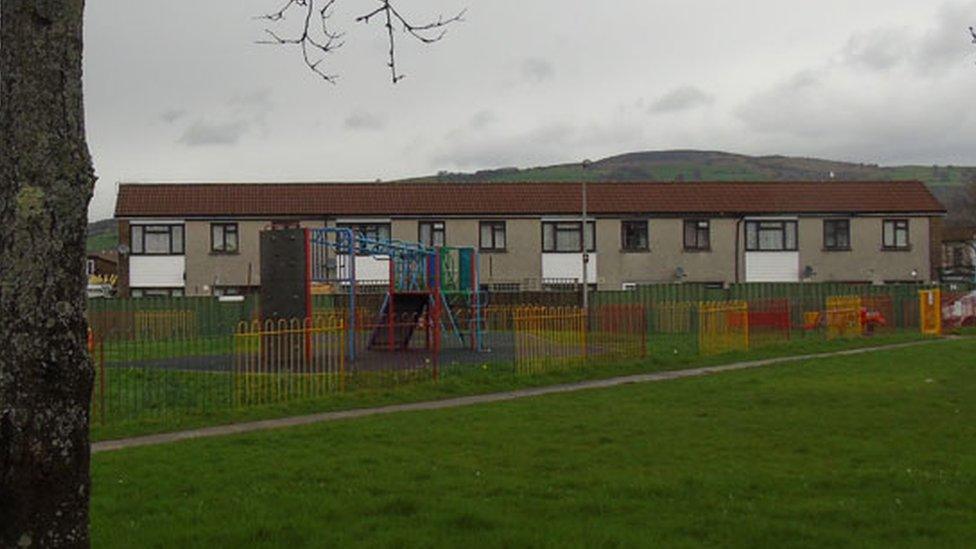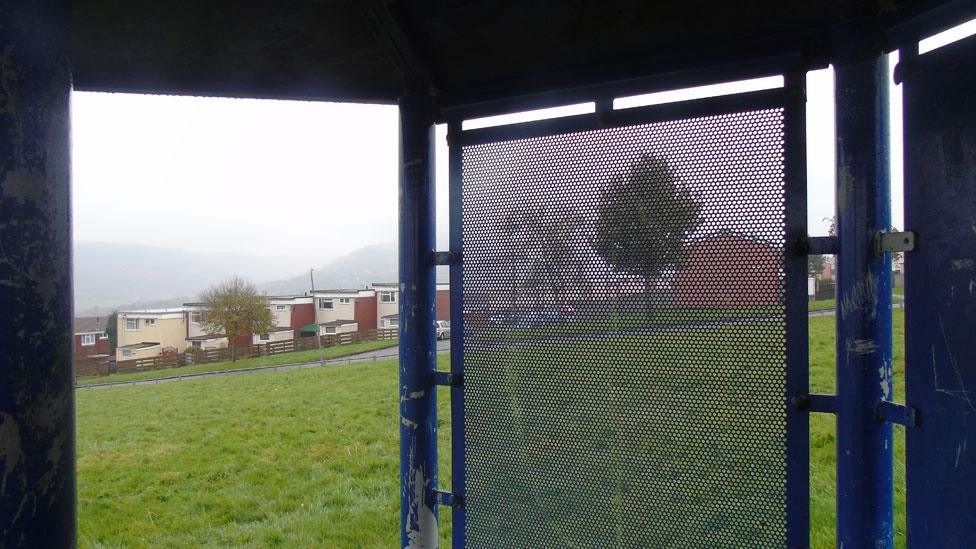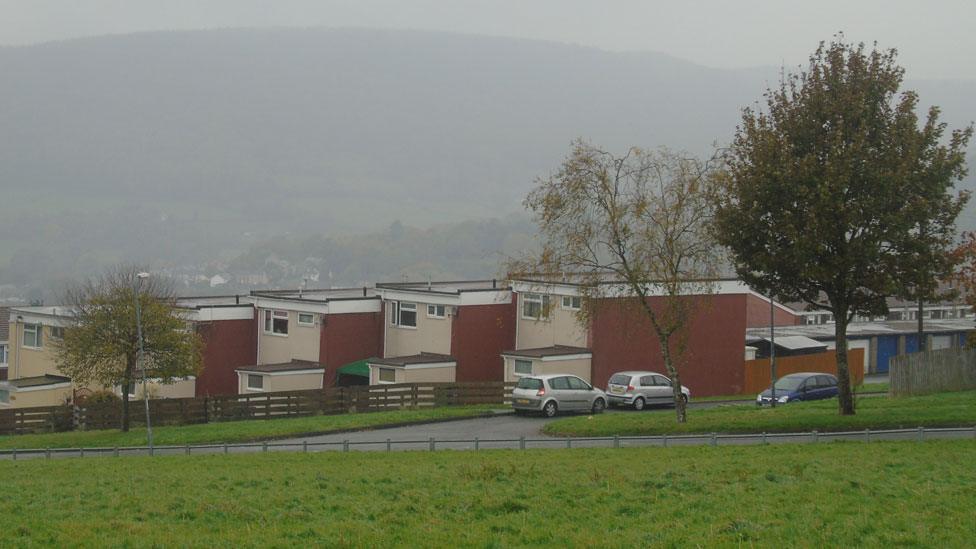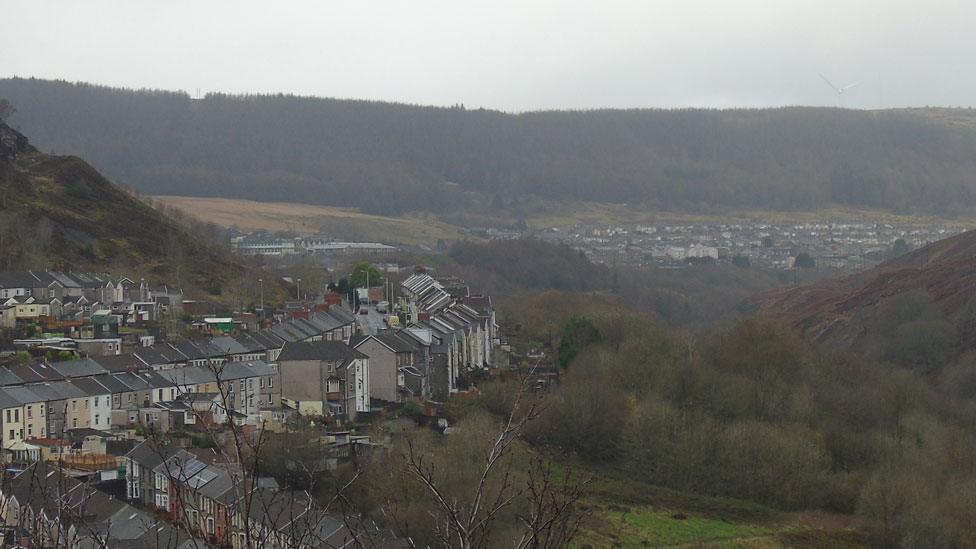Analysis: Valleys jobs focus looks closer to home
- Published

Pontypridd is one of the six economic hubs which will be expected to stimulate growth around them
When the first valleys initiative was launched nearly 30 years ago, there was a strong theme running through these south Wales communities - the sharp decline in coal and the loss of many, many thousands of jobs.
However, there is a big question about whether an all-Valleys approach makes sense today.
What unites them? Does it still make sense to have an economic strategy with such a geographical identity?
Life in various valleys communities today is varied and within each community there are pockets of poverty and pockets of prosperity.
This was highlighted by a recent so-called "deep place" study into Pontypool by Dr Mark Lang.
However, there are clearly still serious economic challenges in the valleys and the taskforce has been gathering the opinions of people living in those communities.
The minister responsible, Alun Davies, who represents one of the poorest valleys constituencies in Blaenau Gwent, has already said one message from communities was that there are not enough jobs near enough to home and there are too many zero-hour contracts and agency work.
He has clearly listened not just to people on the ground but to academics such as Prof Karel Williams and Dr Lang, who for several years have been arguing for more emphasis on what they call the foundational economy.
In other words, the sectors that exist in all communities: health, education, care, food and energy.
Perhaps this is a new thread to weave communities together in the way that coal once did.

The site of Ebbw Vale's steelworks in Blaenau Gwent has been transformed but there is more still to do
Mr Davies has now outlined six economic or growth hubs - an idea suggested by the Bevan Foundation think-tank, although this is double the number it suggested.
The charity has calculated one in 15 jobs in the valleys is temporary, one in four are paid below the living wage and there are 67,000 fewer jobs than you would expect from the age profile of its communities.
But be careful with statistics - averages can be misleading. They can hide both extreme deprivation and wealth and can lead to sweeping statements about a whole community.
Averages can still help to paint a picture. In the case of Blaenau Gwent, it is a depressing one. It is one of the most deprived local authorities in the UK where the rate of unemployment is 50% higher than the Welsh average.
About one in six adults have no qualifications and for those who are working, wages are more than £60 a week less than the Welsh average.
Changing statistics such as those are a real challenge and are complicated, with many influences beyond Welsh Government control and the impact of Brexit.
We should remember the 1993 Valleys initiative was derailed by a UK-wide recession.
But this initiative does feel different from those in the past with the emphasis on more bread and butter - jobs closer to home and growth hubs.
The big question is how quickly the impact will be felt.
- Published20 July 2017

- Published5 July 2016

- Published13 April 2017

- Published27 October 2016

- Published27 October 2016

- Published22 December 2015

- Published23 December 2015

- Published24 April 2014
